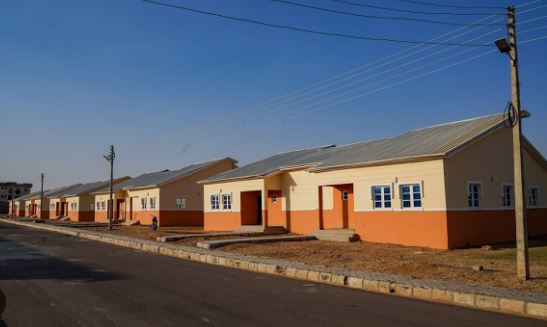Professor Olurotimi Kemiki, the Dean of the School of Environmental Technology and Coordinator of the Institute for Land and Community Resilience has revealed that only about five percent of the 13.7 million housing units in Nigeria were financed through mortgages.
Kemiki made this revelation during the Conference of Directors of Lands in the Federal and State Ministries, Departments and Agencies with the theme “Improving Land Based Revenue of the Federating Units in Nigeria through Efficient and Effective Land Administration” in Lagos,
He said, “The mortgage debt to Gross Domestic Product ratio is only about one per cent, and mortgage loans account for less than one per cent of commercial banks’ total assets.
“The Federal Mortgage Bank of Nigeria manages a National Housing Fund contributed mostly by civil servants. In 2016, the FMBN introduced a scheme offering a housing loan of up to NGN15m. However, there are conditions to be met before one can qualify for the loan – the borrower must have made monthly contributions over six months and make a down payment of 15 per cent of the value of the property.
“Like many other development challenges that African nations, including Nigeria, face, financing housing development is a difficult task. This is mostly because there are not enough resources or favourable conditions to make such financing possible. In actuality, there are several risks associated with the housing finance sector in Africa,” the don explained.
Also, the Chairman of the Nigerian Institute of Town Planners, Federal Capital Territory Chapter, Lami Ayuba, noted that 70 per cent of the challenges confronting the housing sector were associated with difficulty in accessing mortgage.
She said, “It is difficult to access mortgages in Nigeria. So, unless the government engages in social housing to meet the needs of low-income earners, there might be no deficit bridging. Most people work in the private sector, also most are in the business of petty trading.
“Hence, if you are really trying to bridge the housing deficit, who are the people being targeted? Most mortgage banks request for a salary statement and most of these low-income earners do not earn as much as those who can buy a property outright.”
Meanwhile, the Director/Head of Department, Lands, and Housing Development Department, Federal Ministry Of Housing & Urban Development, Felix Appah, said with the prevailing deteriorating economic condition characterised by dwindling oil revenue, high inflationary trends, devaluation of the naira, etc., there was a dire need to seek alternative means of enhancing revenue generation.
He said, “Land is a vital national asset with great economic potential, which hitherto has been largely untapped and, therefore, yearns for exploitation.
“It is of utmost importance to remark that enhancing land-based revenue generation essentially entails evolving processes that increase the speed and convenience of registering property transactions geared towards greater efficiency.”
Source: Punch

































